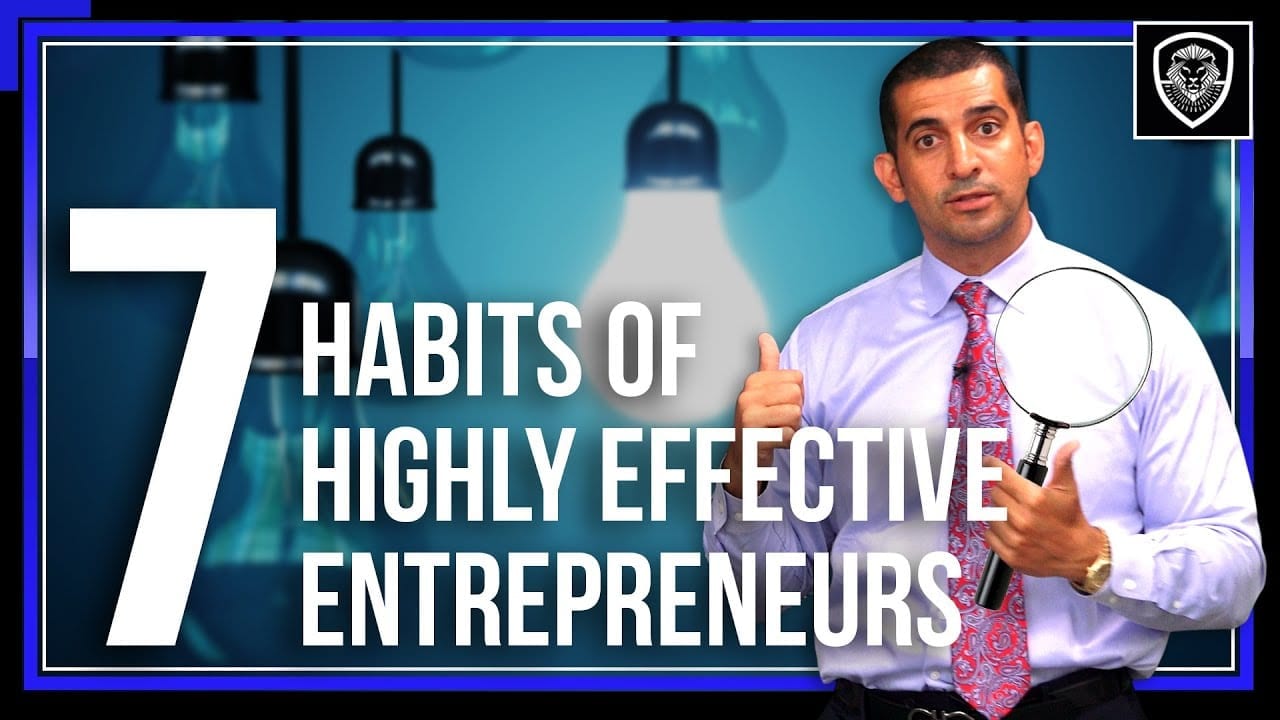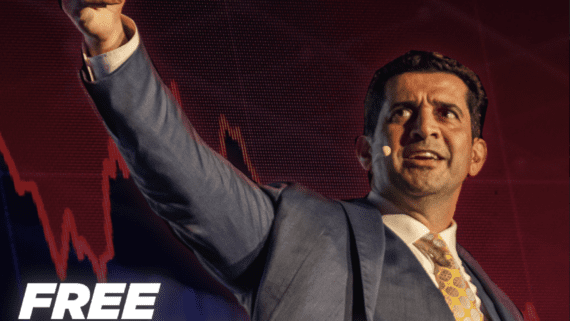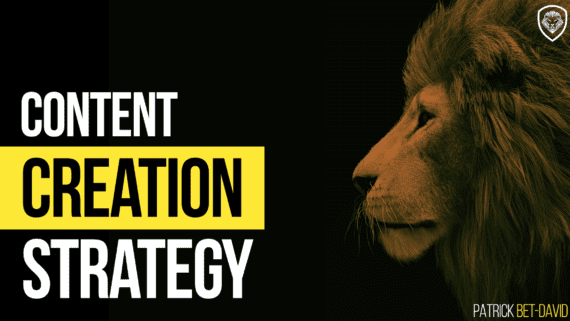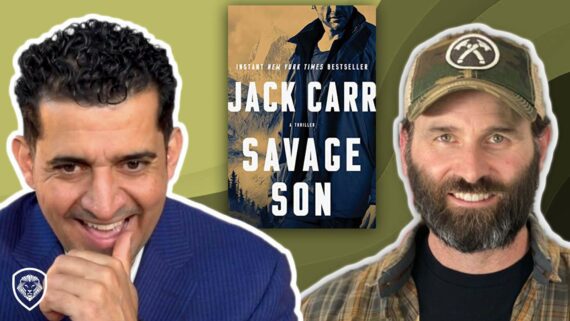One of the reasons why our brain likes to create habits is because our brain is lazy and the more it automates a habit, it does it without even thinking about it. There are certain habits you need to have as an entrepreneur that’s automatically you’re not even thinking twice about it or needing to have a to-do list about it.
The 7 Habits of Highly Effective Entrepreneurs
- Always be aware of the evolution of a business.
Whenever a business starts, the book that explains this the best is, “Barbarians to Bureaucrats”. It explained there’s always a prophet, there’s the visionary, “I have an idea, what if we do dot, dot, dot, dot? I have an idea, what if I got into this industry? I have an idea, what if we do this here?”
Then there’s barbarians, which barbarians are the guys, “I’m going to get it done. We’re going to go do this no matter what.” And that could be you. You could be the prophet and the barbarian. Then you have the builder, explorer, then you start hiring admin people, paperwork, compliance, and then, if you’re not too careful, the company eventually gives birth to bureaucrats and aristocrats. Bureaucrats and aristocrats are deadly to any society, to any company, to any business if you don’t pay attention to them.
So what do I mean by this? You could possibly end up being that bureaucrat or the aristocrat. So bureaucrat or an aristocrat is too cool for the game, is too cool to be reached. It’s too cool to be contacted. Nobody can get close to them because you’re above everybody. So you control. There’s a cocoon, like, “Hey, don’t get close to me, I’m famous. Don’t get close to me, I’m too important of a person.” And then you lose touch with the people and to lose touch with the population, you become God-like and any time you become God-like, no one is God-like, you are bound to get killed. Either that business gets killed or you get killed.
You just saw what happened with Uber recently when the guys at the top say, “We are the biggest IPO of all time,” et cetera, et cetera. Boom! Too big for drivers, too cool for employees, too famous, too popular, and they have a fall and next thing you know, what do you call it, Lyft goes from having 850,000 rides per day, the day the announcement was made with Travis getting fired, to 30 days later, 1 million rides a day. They went up 20% in 30 days, simply because Uber started experiencing this bureaucrat to aristocrat type of stuff. The habit is, always know what’s next. Always know what’s going on. But keep it cool to make sure you don’t experience that part.
- Always have an eye for talent.
This is a habit. You’re always out there. Let’s just say you’re at dinner, somebody starts talking, you’ll say, “I’m impressed by this guy. Hey, what do you do, John?” So you’re looking. I want a compliance guy, I want a finance guy. The director of finance that I had here, she helped open up my checking account at WAMU years ago when there was a WAMU before they went out of business and Chase bought them for $1.9 billion. Ten years ago, in ’05, WAMU was worth $330 billion and she was my banker.
So I go and I open up the checking account and I said, “Guys, this checking account I just opened up is a future billion dollar company.” Everybody’s laughing at me, “Oh, you’re so crazy.” I said, “You’re going to know about this account that we’re opening up here.” She kept paying attention to the account. A year and a half later, I recruit her, she becomes my Director of Finance. But I watched her every time I went there how she treated me. Everywhere you go, watch everybody. See how they treat you.
The habit of a highly effective entrepreneur is you’re always looking for talent. What if we get this girl here? What if we get this guy here? What if we get this person here? I like the way this guy treats me. I like the way this guy gives me customer service. You’re constantly thinking about talent.
- Always solving for X.
Yesterday, I was in Cancun having breakfast with a couple who was thinking about moving their business from, currently right now, they’re in LA, they were thinking about whether to go to Lafayette, Louisiana or whether to grow their business to Miami, Florida. What do you think, should we do it, should we not do it, we’re thinking about it. I said, “Let me ask a question here. First of all, let’s solve for X.” They said, “What is solve for X?” I said, “Do you have family back at home?” “Yes, we do. We got a kid and we got a kid and we got two sons here, that are 16 and 18.”
“What’s the most important?” They said, “Our kids are already grown, they’re going to be fine.” I said, “So that’s not what you’re solving for because if that’s the case, you have to stay in LA, not at all.” Location, market is what we’re solving for. I said, “Then you can’t do Lafayette, it’s 126,000 people living there. Miami you got a bigger market within a 50, 20 mile radius. You may want to start thinking about Miami.” Says, “That’s exactly what we’re thinking about.” Cool. No problem.
So we solve for X. When you don’t solve for X, you don’t always make the best next decision or the best next move that you need to make because you’re not thinking, “What am I solving for? Am I solving for value or profit right now? Am I solving for a short term or long term solution? Is this idea that we just got a good idea for today, for six months from now or five years from now? Why are we spending so much time on an idea that we’ll do five years from now? We don’t have the resources for this $3 million idea, let’s set it aside.” That’s solving for X. So have the habit of always solving for X.
- Constantly studying data.
I love studying data because, to me, one of the jobs of a CEO is to study numbers. So when I have numbers, I can see what we’ve done quarter to quarter to quarter. I can see what we’ve done month to month to month. I can see what’s our best selling day, what’s our worst selling day, what can we do to change the worst selling day, what’s the next data that we need to study to be able to improve to help the revenues go a little bit higher, we’re growing to a new market that we’re not in. Everything is data. Sometimes I think people don’t look at data too much because they say, “I’m an A type personality. I’m the guy that just goes out there and gets the job done. And I’m a killer and I’m a visionary. I don’t deal with the minutia.”
CEO’s, typically, of public companies are CEO’s because they have to do the quarterly calls and investors want to know, “Why did the stock go up or down this quarter?” And the CEO has to do the quarterly earnings. You have to have a story for all the investors. That’s why that person’s a CEO. So you, as the entrepreneur, have to start thinking like that and the only way you can start thinking like that is by constantly paying attention to the data of your business, whatever that business is.
- Constantly casting a vision.
Jessica here told me as we were talking, she said, “You know what, Pat? Every time we’re in meetings or whatever, you always say 10 million, 10 million, 10 million.” She’s saying 10 million, 10 million, 10 million. Where this could go to, where that could go to. I can’t help myself, but I wasn’t like that at first. I was just a dreamer without a vision. Once I sit there and I solve for X and I process the vision and what it’s going to take to get there, I’m constantly selling the vision. I’m constantly selling the vision in meetings, in conference calls, in appointments, in conferences we have, no matter what it is, I am constantly selling the vision.
By the way, this is not something that’s on the to-do list because I’ve done it so many times, it’s automated in my brain because it’s a habit and because our brain likes to be lazy because it likes to have things being automated, I automatically know I’m constantly going to be casting a vision. So you, highly effective entrepreneur, constantly cast the vision of where you’re going next. Where’s the company, the business, where are you going next?
- Constantly staying focused for the next strategy.
I didn’t put the word focused here. Constantly staying focused on the next strategy. Let me explain to you what I mean by this. I did a video, something to do with business strategy, how to strategize your business, et cetera, et cetera.
In this video, I described what is the role of an entrepreneur. What is the role of a CEO who’s building a business? And a lot of times people say, “Well, I need to be doing this, I need to be …” I finally wanted to create a system where everybody knows this is what you’re doing. Sometimes you look at businesses that grow like this or they stay flat and sometimes you notice businesses that are growing like this where they’re beating quarter after quarter after quarter, where the top line revenues beating the prior quarter. What is going on there? And there’s a level of focus. And you can do this as well.
You come up with a strategy. How do you come up with a strategy?
Next Innovative Campaign
Whatever business you’re in, every business has a next innovative campaign. And those that don’t constantly have next innovative campaigns don’t have the inevitable explosion.
Leadership Development
- Make a list of your top three, five, or however many you have. Then start assessing them. You look at their strengths, weaknesses, and what they do and don’t respond to. Then look at their level of competitiveness, their ability to come up with ideas, and how solid they are. You also ask if they believe in the company and what you can do with them.
- Next, sit down and identify what things he or she needs to do in the next six months, 12 months, and two years. Present it to him. Then work on them. Challenge him or her to grow.
Operating System
Most see this as boring but there are two reasons why a company goes out of business:
- They grow too FAST
- They grow too SLOW
The key is to have a well-defined system that becomes a knob. A knob can be turned up or down to handle influx.
Biz Dev/Sales
This has to do with relationships with new vendors and new partnerships, and how to make your sales process better. It’s all about networking, attending events from your industry. Meeting after meeting after meeting. Relationship, relationship, relationship.
Questions:
- Which of the four do you think is linear and which one is exponential?
Answer:
- The LINEAR side is Operating Systems, Biz Dev and Sales.
- The EXPONENTIAL side is your Next Innovative Campaign and Leadership
- Exercise, health, and energy.
That is a habit. Why? If you don’t have energy, you cannot last long. If you cannot last long, you will be crushed by another person that knows how to last long. To do all of this stuff that I just covered with you, the word constantly means what? Energy. Constantly means over and over and over and over and over again. If you don’t have energy, you can’t do anything constantly. You can only do it once because you need energy. Being aware needs energy.
I want you to look at all these habits, write them down, and ask yourself, “How good of a job do you do on every single one of them?” And you may want to watch this video all over again to hear me explain it to you again and if you got an executive team, you may want to watch this with them to get them on the same page as well so you grow even faster.
Watch, share and subscribe http://bit.ly/2aPEwD4
Valuetainment Posting Schedule:
Monday- Motivation
Tuesday- How to Video with Patrick Bet-David
Wednesday- Vlog
Thursday- How to Video with Patrick Bet-David
Friday- Case Studies with Biz Doc Tom Ellsworth
About Valuetainment: This channel is about providing a hybrid of information and education for entrepreneurs. Every video is created with a purpose of providing value and entertainment, hence Valuetainment.
Patrick Bet-David, the creator of this channel has decades of experience, unique perspectives and experience that he wants to give back to the world of entrepreneurs. Why? Patrick Believes that 100 percent of the worlds problems can be solved by entrepreneurs. He is also an active CEO and leads a financial services sales force of over 3,000 agents across the U.S.
To reach the Valuetainment team you can email: marketing@patrickbetdavid.com
Follow Patrick on social media:
Website: https://www.patrickbetdavid.com
Snapchat: https://www.snapchat.com/add/patrickb…
Facebook:https://www.facebook.com/PatrickBetDa…
Instagram:https://www.instagram.com/patrickbetd…
Twitter:https://twitter.com/patrickbetdavid
Linkedin:https://www.linkedin.com/in/patrick-b…





